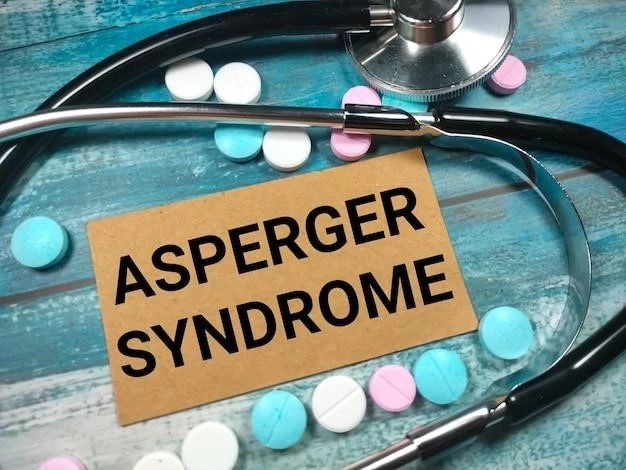Article Plan⁚ Disease — Myophosphorylase Deficiency
Introduction to Myophosphorylase Deficiency
Myophosphorylase deficiency, also known as McArdle disease, is a rare metabolic muscle disorder characterized by the inability to efficiently process carbohydrates for energy production. Symptoms include exercise intolerance, muscle pain, and cramps. This disorder is caused by a lack or malfunction of the enzyme myophosphorylase, essential for glycogen breakdown in muscle tissue. McArdle disease is inherited in an autosomal recessive pattern and primarily affects skeletal muscles. Diagnosis often involves genetic testing and muscle biopsy to confirm the deficiency. Treatment strategies focus on managing symptoms and optimizing exercise routines to minimize muscle damage.
To explore the incidence, genetic basis, diagnosis, clinical presentation, biochemical mechanisms, impact on muscle metabolism, treatment strategies, and advances in research related to myophosphorylase deficiency, continue reading the comprehensive article below.
Definition and Symptoms of Myophosphorylase Deficiency
Myophosphorylase deficiency, also known as McArdle disease, is a rare genetic disorder that affects the breakdown of glycogen in muscle cells. This condition leads to exercise intolerance and muscle weakness due to the inability to produce energy efficiently during physical activity. Common symptoms include muscle cramps, fatigue, and myoglobinuria, which is the presence of myoglobin in the urine. Individuals with myophosphorylase deficiency often experience muscle pain and stiffness that improve with rest. The diagnosis is usually confirmed through genetic testing and muscle biopsy.
To learn more about the definition, symptoms, diagnosis, and management of myophosphorylase deficiency, continue reading the detailed section below.
Incidence and Prevalence of Myophosphorylase Deficiency

Glycogen storage disease type V (GSD5), or McArdle disease, is a rare metabolic disorder caused by myophosphorylase deficiency, with a reported incidence of around one in 100,000 individuals. This condition, inherited in an autosomal recessive manner, primarily affects skeletal muscles. The prevalence of myophosphorylase deficiency remains relatively uncommon, with symptoms including exercise intolerance, muscle cramps, and myoglobinuria typically manifesting in affected individuals.
For further insights on the incidence, prevalence, and inheritance pattern of myophosphorylase deficiency (McArdle disease), please delve into the detailed section below.
Genetic Basis of Myophosphorylase Deficiency
McArdle disease, also known as glycogen storage disease type V, is primarily caused by a genetic defect in the PYGM gene, which encodes the enzyme myophosphorylase. This autosomal recessive disorder leads to the absence or malfunction of myophosphorylase, essential for glycogen breakdown in muscle cells. The mutations in the PYGM gene disrupt normal muscle metabolism, resulting in symptoms such as exercise intolerance, muscle weakness, and myoglobinuria. Understanding the genetic basis of myophosphorylase deficiency is crucial for accurate diagnosis and personalized management strategies.
To delve deeper into the genetic underpinnings of myophosphorylase deficiency and its implications on muscle metabolism, explore the detailed information provided below.

Diagnosis of Myophosphorylase Deficiency
The diagnosis of myophosphorylase deficiency, commonly known as McArdle disease, involves a combination of clinical evaluation, genetic testing, and muscle biopsy. Patients presenting with exercise intolerance, muscle cramps, and myoglobinuria often prompt further investigation for this rare genetic disorder. Genetic testing targeting the PYGM gene, responsible for encoding myophosphorylase, helps confirm the diagnosis. Additionally, muscle biopsy can reveal the absence or malfunction of myophosphorylase enzyme in muscle tissue, providing valuable insights into the condition.
To understand the diagnostic process, including genetic testing and muscle biopsy, necessary to identify myophosphorylase deficiency accurately, explore the information presented below.
Clinical Presentation of Myophosphorylase Deficiency
Individuals with myophosphorylase deficiency, known as McArdle disease, often present with exercise intolerance, muscle cramps, and fatigue. Symptoms may include myoglobinuria (myoglobin in urine), muscle pain, and stiffness during physical activity. The clinical manifestation of this genetic disorder stems from the inability to efficiently break down glycogen in muscle tissue, leading to impaired energy production. Understanding the clinical presentation is crucial for early recognition and appropriate management of myophosphorylase deficiency.
For more detailed insights into the clinical features and presentation of myophosphorylase deficiency, continue reading the comprehensive information provided below.
Distinction Between Different Forms of Myophosphorylase Deficiency
Myophosphorylase deficiency, commonly known as McArdle disease, presents distinct forms based on the protein subunit corresponding to phosphorylase in muscle extracts. By utilizing sodium dodecyl sulfate-polyacrylamide gel electrophoresis, clinicians can differentiate these forms. Patients may exhibit a complete absence or presence of the phosphorylase protein, impacting the severity and clinical manifestations of the disease. Understanding these distinctions aids in personalized management approaches and prognosis.
For a deeper understanding of the varied forms of myophosphorylase deficiency and their implications on disease manifestations, please explore the detailed section provided below.
Biochemical Mechanisms Involved in Myophosphorylase Deficiency
Myophosphorylase deficiency, known as McArdle disease, is primarily characterized by a lack or malfunction of the muscle glycogen phosphorylase enzyme, impacting glycogen breakdown within skeletal muscle cells. This metabolic disruption leads to exercise intolerance, muscle weakness, and myoglobinuria. The genetic alterations affecting the PYGM gene, responsible for encoding myophosphorylase, result in impaired muscle metabolism. Understanding the intricate biochemical mechanisms underlying myophosphorylase deficiency is crucial for elucidating the pathophysiology and developing targeted therapeutic interventions.
For a detailed exploration of the biochemical pathways disrupted in myophosphorylase deficiency and their impact on muscle function, continue reading below.
Impact of Myophosphorylase Deficiency on Muscle Metabolism
Myophosphorylase deficiency, also known as McArdle disease, significantly impacts muscle metabolism by disrupting the breakdown of stored glycogen for energy production. This genetic disorder leads to a shortage of glucose-1-phosphate crucial for cellular fuel within muscle cells. Consequently, individuals with myophosphorylase deficiency experience exercise intolerance, rapid fatigue, myalgias, and muscle contractures during physical activity. Understanding the profound effects of this deficiency on muscle metabolism is essential for tailored treatment approaches and symptom management.
For further insights into how myophosphorylase deficiency influences muscle metabolism and energy production, continue exploring the detailed information provided below.
Treatment Strategies for Myophosphorylase Deficiency
Treating myophosphorylase deficiency, known as McArdle disease, focuses on symptom management and optimizing exercise routines to reduce muscle damage. Patients are advised to adjust physical activity levels and incorporate interval training to leverage the ″second wind″ phenomenon. Additionally, maintaining a balanced diet with an emphasis on easily digestible carbohydrates can help alleviate symptoms by providing alternative energy sources. In severe cases, medical professionals may recommend targeted physical therapy to improve muscle function and mobility.
To explore the comprehensive approaches to managing and treating myophosphorylase deficiency effectively, continue reading the detailed information provided below.
Other Names and Synonyms for Myophosphorylase Deficiency
Myophosphorylase deficiency, also referred to as McArdle disease or glycogen storage disease type V, has several alternative names and synonyms. Some of the common terms used interchangeably with myophosphorylase deficiency include GSD V (Glycogen Storage Disease Type 5), muscle glycogen phosphorylase deficiency, and PYGM deficiency. These names reflect the genetic and metabolic nature of the condition and its impact on muscle function. Understanding the various terminologies associated with myophosphorylase deficiency aids in comprehensive communication and awareness within the medical community.
For further exploration of the different names and synonyms used for myophosphorylase deficiency (McArdle disease), refer to the detailed information provided below.
Research and Advances in Understanding Myophosphorylase Deficiency
Ongoing research into myophosphorylase deficiency, also known as McArdle disease, continues to advance our understanding of this metabolic muscle disorder. Recent studies have focused on elucidating the molecular mechanisms underlying the genetic defects that lead to the malfunction of the myophosphorylase enzyme. Additionally, scientific efforts have been directed towards exploring potential therapeutic interventions to alleviate symptoms and improve quality of life for individuals affected by this condition. Advancements in genetic testing and muscle metabolism studies have provided valuable insights into the pathophysiology of myophosphorylase deficiency, paving the way for more targeted treatment strategies.
To delve deeper into the latest research findings and emerging trends in the field of myophosphorylase deficiency, explore the detailed information presented below.
Comorbidities Associated with Myophosphorylase Deficiency
Individuals with myophosphorylase deficiency, or McArdle disease, may experience comorbidities related to muscle metabolism disruptions. Common complications include exercise-induced rhabdomyolysis, where muscle breakdown releases myoglobin into the bloodstream, potentially leading to kidney damage. Additionally, individuals may face challenges in managing glucose levels during prolonged physical activity, impacting overall energy levels and muscle function. Understanding these associated comorbidities is crucial for comprehensive care and tailored treatment plans.
To explore the potential comorbidities and complications linked to myophosphorylase deficiency (McArdle disease), continue reading the detailed information provided below.
Conclusion and Future Directions in Myophosphorylase Deficiency Research
In conclusion, research on myophosphorylase deficiency, also known as McArdle disease, has significantly advanced our understanding of this metabolic muscle disorder. Current studies focus on elucidating the genetic and biochemical mechanisms underlying the disease, leading to improved diagnostic techniques and personalized treatment strategies. Future research endeavors aim to explore innovative therapeutic interventions that target muscle metabolism and alleviate symptoms associated with myophosphorylase deficiency. By continuing to investigate the pathophysiology of this condition, researchers strive to enhance patient care and quality of life for individuals affected by McArdle disease.
For a more detailed discussion on the conclusion of existing research and future directions in understanding myophosphorylase deficiency, refer to the comprehensive information provided below.
